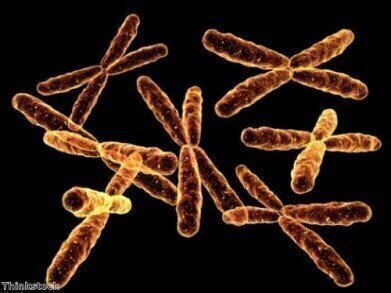-
 Scientists create first synthetic chromosome for yeast
Scientists create first synthetic chromosome for yeast
Bioanalytical
Scientists create first synthetic chromosome for yeast
Apr 02 2014
An international team of scientists have managed to create the first functional synthetic chromosome in yeast in a landmark for biological engineering.
Previous research has designed synthetic DNA but yeast is far more complex as it contains a nucleus and is related to plants and animals, sharing 2,000 genes with human beings. This makes the creation of the first of yeast's 16 chromosomes a breakthrough in the relatively young science of synthetic biology.
Synthetic versions of genes were placed into the original chromosome and the finished manmade chromosome was then integrated into a yeast cell. The new cell was then observed to reproduce and was considered viable.
Yeast is a popular subject for such studies as it is commonly used in a variety of industries and, in previous research, it has been used to create ingredients for an anti-malarial drug. The successful chromosome creation comes off the back of more than seven years research into the DNA construct of yeast.
Researchers made more than 500 alterations to the chromosome's genetic base, removing repeating sections of more than 47,800 DNA base pairs, which were considered unnecessary to chromosome reproduction and growth.
The team, led by Dr Jef Boeke, say this marks one of the most significant advances in yeast genetics since 1996, when scientists first discovered the entire genetic blueprint for yeast.
“Our research moves the needle in synthetic biology from theory to reality,” said Dr Boeke, a pioneer in synthetic biology.
“This work represents the biggest step yet in an international effort to construct the full genome of synthetic yeast,” added Dr Boeke.
“It is the most extensively altered chromosome ever built. But the milestone that really counts is integrating it into a living yeast cell. We have shown that yeast cells carrying this synthetic chromosome are remarkably normal. They behave almost identically to wild yeast cells, only they now possess new capabilities and can do things that wild yeast cannot.”
The findings, published in the Science journal, detail how the team used computer-aided design to build the fully-functional chromosome - called synIII - and how this was introduced to brewer’s yeast, known as Saccharomyces cerevisiae.
Digital Edition
Chromatography Today - Buyers' Guide 2022
October 2023
In This Edition Modern & Practical Applications - Accelerating ADC Development with Mass Spectrometry - Implementing High-Resolution Ion Mobility into Peptide Mapping Workflows Chromatogr...
View all digital editions
Events
Apr 23 2024 Kintex, South Korea
Apr 23 2024 Seoul, South Korea
Apr 28 2024 Montreal, Quebec, Canada
May 05 2024 Seville, Spain
May 15 2024 Birmingham, UK













